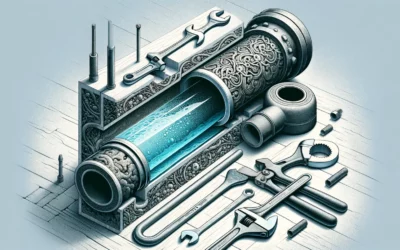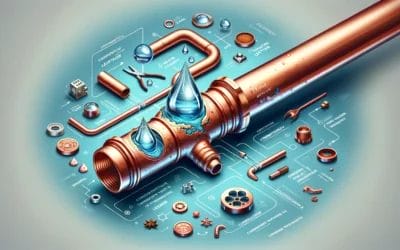“Eliminating Unpleasant Odors from Restaurant Floor Drains”, we will be exploring effective strategies to address a very common issue faced by many eating establishments around the globe – unpleasant smells emanating from floor drains. This topic, often overlooked, has a large impact on the ambiance and dining experience of your customers. Through this article, you will learn various proven methods from industry experts that will help you successfully eliminate gross odors and maintain a fresh and clean-smelling restaurant. It’s all backed by science and practical experience, making it a handy, reliable guide for restaurant owners and managers seeking real solutions to their odor problems. So whether you own a fine-dining restaurant or a small and cozy café, this guide is bound to be useful, informative, and easy-to-understand. Let’s eliminate those offending odors together and enhance the overall dining experience at your restaurant!
Understanding the Source of Unpleasant Odors in Restaurant Floor Drains
Before discussing possible solutions for unpleasant odors, it is essential to understand their source, particularly if they are coming from restaurant floor drains. One main culprit could be trapped grease. Most restaurants have a busy kitchen where cooking oil and leftover food create grease that heads down the drain. Over time, this grease hardens and traps bacteria that produce foul odors. Furthermore, food particles that escape the grease trap may settle at the bottom of the drain, where they rot and create a stench. Another potential source is dry traps. Water serves as a barrier in the drainpipe, preventing bad smells from coming up the floor drain. If a drain is not used often, the water in the trap may evaporate, leaving nothing to block the sewer gas odor.
| SOURCE | ODOR CAUSE |
| Trapped Grease | Hardened grease traps bacteria that produce foul odors |
| Food Particles | Food particles rot at the bottom of the drain, creating a stench |
| Dry Traps | When water evaporates, there’s nothing to block sewer gas odor |
Additionally, formation of biofilm on the drainpipe walls can lead to foul smells. Biofilm is a slimy bacterial layer that adheres to the interior pipe surfaces and retains waste materials. Also, an often overlooked source of unpleasant smells can be damaged sewer pipes. Cracked or broken drain lines can let foul gas leak into your restaurant. Detecting these issues requires professional help, but knowing the possible sources can help you in making the right call to the specialists.
| SOURCE | ODOR CAUSE |
| Formation of Biofilm | The bacterial layer adheres to pipe surfaces and retains waste materials |
| Damaged Sewer Pipes | Cracked or broken drain lines can let sewer gas leak into your restaurant |

Elimination Techniques for Unpleasant Odors from Floor Drains
In the hustle and bustle of running a restaurant, a common issue that can often be overlooked is the unpleasant odor emanating from the floor drains. Over time, accumulation of food debris, grease, and other waste materials can lead to a tremendously smelly problem. Proper cleaning and maintenance of drain systems can dramatically reduce these foul smells, keeping your restaurant smelling fresh and clean always. One effective way to eliminate odor is by using biological drain cleaners. These cleaners are a mix of bacteria and enzymes that work together to dissolve the organic material causing the smell. They are also safer for the environment as they do not contain harsh chemicals. Simply,
- Pour the enzyme cleaner down the drain,
- Wait some hours as recommended in the product instructions.
Another important aspect of managing odors in floor drains is ensuring the traps are functioning correctly. The trap is a curved part of the drain pipe designed to hold water, preventing sewer gases from emerging into the building.
| Component | Function |
|---|---|
| Schedule regular maintenance and cleaning | Tackle the problem before it becomes a major issue. |
| Use Biological cleaners | Safe and efficient way to dissolve organic matter causing the smell. |
| Ensure proper functioning of drain traps | They hold water, preventing sewer gases from coming out. |
Just remember, in order to maintain a pleasant environment for employees and customers alike, regular cleaning and proper maintenance of your drain systems is absolutely essential in any food service establishment.
Implementing Regular Cleaning Routines for Restaurant Drains
For any restaurant, maintaining clean and pleasant-smelling floor drains is of high priority. Over time, a buildup of food particles, grease, and other sludge can lead to unpleasant smells that can disrupt your business and affect your reputation. Regular cleaning routines can eliminate these odors, keeping your establishment fresh and welcoming.
First and foremost, begin by flushing the drains using a mix of hot water and a high-quality drain cleaner. This will help dissolve any blockages and wash away debris. To do this effectively, pour a gallon of boiling water down each drain, then apply the cleaning solution according to the manufacturer’s instructions. After allowing it to work its magic for the specified time, follow it up with another gallon of hot water. Make sure to repeat this process once a week to keep your drains sparkling clean and free from foul odors.
- Bi-weekly deep cleaning: While weekly flushings help, a more intensive cleaning procedure should be performed every two weeks. This involves using a drain brush to scrub away stubborn debris, using drain cleaning foam, and then rinsing thoroughly with hot water and bleach.
- Maintain grease traps: Regular maintenance of grease traps is crucial as they can often be a source of unpleasant odors. Make sure to check them regularly and arrange for professional cleaning if you observe significant accumulation.
- Professional cleaning: While regular cleaning can significantly reduce odors, it is recommended to get a professional deep clean at least twice a year. A professional cleaning service will have the expertise and tools to remove buildups that normal cleaning procedures may miss.
| Task | Frequency |
| Flushing drains | Weekly |
| Bi-weekly deep cleaning | Every two weeks |
| Maintaining grease traps | As needed |
| Professional cleaning | Biannual |
By adhering to these practices, not only will you keep your restaurant’s drains clean and odour-free, but you’ll also prevent costly damages and extend the life of your plumbing systems. Remember, a clean restaurant is a successful restaurant.

Natural Solutions for Dealing with Persistent Drain Odors
Restaurants, with their constant influx of food matter and grease, are particularly prone to persistent drainage odors. A common problem faced by many restaurant owners, unpleasant smells can not only create a repugnant environment but can also lead to health risks. Fortunately, a variety of natural solutions exist for warding off these pesky odors.
One of the most straightforward natural ways to address this issue is through the routine use of hot water and dish soap. By regularly rinsing your drains with a solution of these two household items, you can dislodge food particles and grease that may have stuck to the pipes, therefore preventing bacterial growth and associated odors. Similarly, baking soda and vinegar can be used as a potent monthly cleaning solution. Combine equal parts of these two substances and pour them into the drain. Let it sit for at least 15 minutes, followed by a hot water rinse. This should help to eliminate lingering smells and keep your drainage system running smoothly.
Another natural way to combat drain odors involves using enzymes or bacteria that eat away at the residue in the drain lines. There are various enzymatic drain cleaners available in the market that serve this purpose. Alternatively, consider using lime or lemon peels. Scraping these peels into the drain can neutralise odors and give a fresh, clean scent to the restaurant.
| Natural Solution | Frequency |
|---|---|
| Hot Water and Dish Soap | Daily |
| Baking Soda and Vinegar | Monthly |
| Enzymes or Bacteria | Variable |
| Lime or Lemon Peels | As needed |
Remember, prevention is always better than cure. Regular maintenance and cleaning of your restaurant’s drains is vital for keeping persistent odors at bay. By following these natural solutions, you can keep your restaurant smelling fresh and pleasant, ensuring a more enjoyable dining experience for your customers.

Incorporating Odor-Eliminating Practices into Staff Training
To ensure that unpleasant odors don’t persist in your restaurant, it’s essential to incorporate odor-eliminating practices into your staff training. This will keep the dining environment pleasant, improve the overall experience for customers and reduce complaints related to unpleasant smells coming from the floor drains. Here, we will explore how these best practices can be integrated into your regular staff training. Preventive Maintenance and Regular Cleaning: Initially, it’s important to emphasize preventive measures such as regular cleaning of floor drains. Stress the importance of daily drain maintenance and routinely check the staff’s adherence to this routine. To encourage compliance, you can even introduce a reward system for maintenance excellence. Running a regular cleaning schedule can also help staff identify potential issues early, and undertake corrective measures. List of Cleaning Agents: Staff should be made familiar with the various cleaning agents and chemicals used to eliminate unpleasant odors, as well as their safe handling procedures. This can be accomplished through periodic hands-on workshops. The list of cleaning agents should include both chemical and natural solutions, giving staff options to suit different situations.
| Chemical Cleaning Agents | Natural Alternatives |
|---|---|
| Bleach | Vinegar |
| Drain Cleaners | Baking Soda and Vinegar |
| Deodorizers | Lemon Juice |
By making odor elimination an integral part of staff training, your restaurant can maintain a pleasant and welcoming environment for patrons. Additionally, this proactive approach can ultimately save you time and costs associated with addressing recurring odor issues. Remember, a clean-smelling restaurant is more likely to attract and retain customers than one struggling with unpleasant odors.
Installing and Maintaining Odor-Blocking Devices for Floor Drains
Restaurant owners will understand the importance of a clean and pleasant-smelling environment. One common source of unpleasant odor in restaurants can be the floor drains; fortunately, there are preventive measures to combat this. Installing odor-blocking devices is an effective solution, these devices are designed to lock the odor in the drain instead of allowing it to escape into your restaurant’s atmosphere. Maintenance of these odor-blocking devices is equally important as their installation. For the installation, you will need to identify the problematic drain in your restaurant. This is usually the drain that is closest to where the odor is strongest. Once identified, purchase an odor-blocking device or trap seal that fits your drain size. Installation usually involves the following steps:
- Removing the grate from the drain.
- Fitting the device into the drain.
- Reattaching the grate.
On the other hand, for maintenance of the devices, they generally should be cleaned weekly. This can be done by removing the device, rinsing it thoroughly with warm water and a gentle detergent, and replacing it. Remember to regularly check its functionality – if the device appears cracked, warped, or otherwise damaged, it should be replaced.
| Task | Frequency |
|---|---|
| Clean Devices | Weekly |
| Inspect Devices | Monthly |
| Replace Devices | As needed |
These proper maintenance steps will ensure that your restaurant’s ambience stays pleasant and free from foul odors emanating from the floor drains. And the most significant part is, your guests are provided with a comfortable and enjoyable dining experience.](https://www.odorblock.com/)
Legal and Health Implications of Foul Smelling Restaurant Drains
Legal Consequences of Neglected Drains
Let’s start by addressing the legal implications of maintaining foul-smelling restaurant drains. Nasty smells are not only unpleasant for your customers and staff, but they can also put you on the wrong side of the health and safety regulations. In most jurisdictions, a restaurant must provide a healthy and safe environment. This includes maintaining clean, odor-free drains. If health inspectors find evidence of neglected drains, restaurants can be subjected to:
- Closure: In extreme cases, your business may be shut down until the issues are resolved.
- Fines: You may be liable for hefty fines.
- Legal Liability: If your customers fall ill due to the unsanitary conditions of your kitchen, you could be sued.
The Health Consequences of Foul Odors
Additionally, the presence of persistent foul smells in restaurant floors can indicate serious health implications. Bad smells often emanate from stagnant water or food debris caught in these drains, providing a breeding ground for bacteria and pests such as cockroaches and flies. The bacteria and pests, if not handled appropriately, can spread harmful diseases. Some of the potential health risks associated with foul smelling drains are:
- Pathogens: Bacteria from stagnant water or rotten food can be the sources of serious illnesses.
- Allergens: Bad smells caused by mould or mildew can lead to allergies and respiratory problems.
- Pests: Swarms of flies around your establishment risk contaminating food and transmitting diseases.
To avoid these issues, regular and professional cleaning of restaurant floor drains is a must. This includes using appropriate drain cleaners, periodic replacement of drain traps, and professional plumbing check-ups to ensure proper drain function. By doing so, you can maintain a pleasant, safe, and legally compliant restaurant environment.
Seeking Professional Help for Stubborn Drain Odors in Restaurants
Floor drains play a critical role in keeping restaurants clean and sanitary. However, when they start emitting foul odors, customers may get put off, thereby affecting business. Getting professional help is crucial in addressing persistent drain odors that simple cleaning techniques fail to eliminate. Trained professionals have the necessary expertise and equipment to properly inspect, clean, and maintain floor drains, helping nip the problem in the bud. Professional drain cleaning services typically offer a comprehensive set of services, including:
- Drain inspection: Inspecting the floor drains thoroughly to pinpoint the source of the odor.
- Drain cleaning: Cleaning the drains and traps regularly to eliminate debris, grease, and other substances causing the smell.
- Maintenance services: Offering regular maintenance services to help prevent future odors from reoccurring.
A professional service is more capable of handling, diagnosing, and treating drain issues than a DIY approach. Additionally, it’s cost-effective in the long run as it avoids potential drain-related problems that could lead to expensive repairs.
| # of Services | Fees | |
|---|---|---|
| Professional Drain Cleaning Services | Multiple | Varies |
| DIY Approach | Limited | Potentially High (due to potential damages) |
The relentless odors emerging from your restaurant’s floor drains is a problem that needs to be addressed promptly. Trusting professionals in the field offer a swift and reliable solution that will ensure your drains are clean and odor-free, contributing to a more comfortable and appealing dining ambiance for your customers. In conclusion, maintaining a clean, fresh-smelling restaurant is not just about delivering excellent service and food but also in providing a wonderful overall dining experience. Unpleasant smells coming from floor drains can significantly affect this. But with the proper knowledge and tools, eliminating these odors can be achievable. Remember, this is not just about getting rid of the stink – it’s also about ensuring the health and safety of your patrons and staff. Regular cleaning and prevention methods, professional help when needed, and understanding the root cause of these smells are key to maintaining an odor-free environment in your restaurant. So, keep your business in its best form by addressing these issues promptly and adequately. Remember, a sweet-smelling, well-maintained restaurant is always the first step to a great dining experience. Keep these tips in mind and let your restaurant not only be known for its mouth-watering food but also for being a pleasant, odor-free zone.









